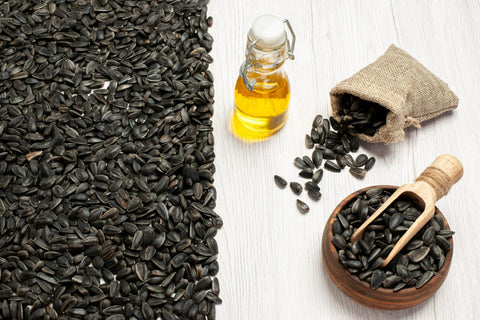What Is Artichoke?
It is a delicious vegetable scientifically known as Cynara cardunculus var. scolymus, it belongs to the Thistle family and is native to the Mediterranean region.
Artichokes are widely celebrated for their unique flavor, delicate texture, and numerous health benefits.
They are a large, rounded flower bud with overlapping layers of thick, fleshy leaves. The edible portion, is the tender base of these leaves, known as the "heart."
As the Artichoke matures, its bud develops into a vibrant purple or green flower, which, if left unharvested, can open into a stunning display of spiky petals. However, it is the tightly packed buds or “young plants” that are commonly sought after for culinary purposes.
They can be prepared in various ways, such as steaming, boiling, grilling, or braising. Cooked Artichoke has a distinct flavour and is often described as nutty, earthy, and slightly sweet, with a hint of bitterness.
They are frequently enjoyed as appetizers, incorporated into salads, or as a key ingredient in dishes like dips, pasta sauces, and stuffed Artichokes.
Globe Artichoke (Cynara scolymus) is a nutritious and popular vegetable, especially in France, known to be an excellent source of antioxidants, which minmise damage caused by oxidative stress. It is known to benefit the liver, cardiovascular health, stomach and gut health, digestion, blood pressure and possibly blood sugar levels.
The edible part (the Artichoke’s heart) contains more nutrients than the leaves (1) although the Polyphenolic compounds are mainly found in the leaves. To make an extract, the heart, leaves and roots are crushed and usually combined with a mixture of methanol and water.

Key Active Ingredients
Artichoke extract contains cynarin, luteolin (2), caffeoylquinic acid, chlorogenic acid (3), apigenin, sterols, inulin, cynaropicrin and luteolin.
Cynarin is an antioxidant which stimulates bile production (4), supporting the digestion of fats, absorption of vitamins from food and liver detoxification (5).
Caffeoylquinic acid is also an antioxidant which helps detoxify the liver by forming bonds with toxic compounds and lowering their toxicity (6).
Luteolin is another antioxidant with anti-inflammatory and immune-stimulating properties (7).
Cynaropicrin may help relax the GI tract muscles and reduce excessive muscle contractions in the gut (8).
Inulin is a starchy soluble fibre, regarded as an excellent prebiotic able to increase the number of beneficial friendly bacteria residing in the intestinal tract, promoting gut health, digestion, detoxification and immunity.
Most of the positive effects of inulin are the result of the metabolites produced by bacteria that use inulin as food to generate energy (9). Furthermore, their specific microstructure enables them to create a perfect environment for the growth and multiplication of probiotic bacterial strains such as Lactobacillus paracasei.

Possible Health Benefits
1. Digestion & Liver Health
Artichoke extract stimulates the production of bile which helps eliminate toxins from the liver. Antioxidant compounds found in Artichoke extract also help protect the liver against oxidative damage (5,10).
In clinical trials on people with digestive problems, the intake of Artichoke extract helped ease digestive problems. Cynarin, one of the key components of Artichoke, was found to stimulate bile production, supporting fat digestion, liver health and the absorption of Vitamins and Minerals.
It also helped improve colon motility thus preventing constipation and improving elimination of toxins (5,11).
2. Gut Health
In a clinical trial, daily consumption of inulin, derived from Artichoke increased the beneficial bacteria count in the gut (9) while reducing the growth of harmful E. coli and Clostridium bacteria and helping relieve constipation (12,13).
In a clinical trial on people suffering from IBS, both constipation and diarrhoea decreased after 8 weeks of taking the extract (14).
In a survey which included about 300 individuals with IBS, who took Artichoke extract, 96% rated the extract as more beneficial than or at least equivalent to other therapies (15).
An animal study has demonstrated that an Artichoke extract compound, containing cynaropicrin, may have the potential to significantly reduce muscle spasms in the gut, thus helping reduce pain and diarrhoea (8).
3. Cardio-Vascular Health
In an animal trial, it was demonstrated that Artichoke extract had the potential of lowering cholesterol by stimulating bile acid secretion, which is one of the key ways of eliminating excess cholesterol (16).
The antioxidant effects of Artichoke extract may help reduce plaque in the arteries by inhibiting the oxidation of bad LDL cholesterol (5,17).
In a clinical trial, taking Artichoke extract for 3 months helped lower bad LDL cholesterol (17) and increase good HDL cholesterol (18, 19,20,21,22).
In an animal experiment, Artichoke extract significantly lowered total cholesterol, bad cholesterol (23) and triglycerides (16,24).
Luteolin, from Artichoke, was found to be able to inhibit cholesterol formation (5).
4. Blood Pressure
Scientific research suggests that Artichoke extract can stimulate the production of nitric oxide which helps maintain normal blood pressure by widening blood vessels (5,25).
Supplements
Artichoke supplements have gained popularity in recent years due to the potential health benefits associated with this unique vegetable. While fresh Artichokes are a delicious and nutritious addition to a balanced diet, supplements offer a concentrated dose of specific bioactive compounds.
It's important to note that while supplements may offer potential benefits, they should not be used as a substitute for a balanced diet or prescribed medication.
As with any dietary supplement, it's recommended to consult with a healthcare professional before incorporating supplements into your routine, especially if you have any existing health conditions or are taking other medications.
When purchasing supplements, it's advisable to choose reputable brands that adhere to quality standards and ensure the purity and potency of their products.
The dosage and formulation may vary among different brands, so it's essential to follow the recommended guidelines provided by the manufacturer or as advised by your healthcare provider.
In conclusion, Artichoke supplements provide a concentrated form of certain beneficial compounds found in Artichokes. While they may offer potential health benefits, more research is needed to fully understand their effects and optimal usage.
Related articles:
Diet & Nutritional Supplements for Fatty LiverHow To Maintain Cardiovascular & Heart Health
References
2. Luteolin: Potential Benefits + Foods & Side Effects - SelfHacked
3. 6 Health Benefits of Chlorogenic Acid + Side Effects - SelfHacked
4. 10 Alleged Benefits of Ox Bile Supplements + Side Effects - SelfHacked
5. Pharmacological Studies of Artichoke Leaf Extract and Their Health Benefits - PubMed (nih.gov)
7. Polyphenol compounds in Artichoke plant tissues and varieties - PubMed (nih.gov)
11. Increase in choleresis by means of Artichoke extract - PubMed (nih.gov)
17. LDL-Cholesterol: High, Low, Normal Levels - SelfHacked
18. HDL Cholesterol: Increasing Naturally + Normal Ranges - SelfHacked
21. Efficacy of Artichoke dry extract in patients with hyperlipoproteinemia - PubMed (nih.gov)
22. Artichoke juice improves endothelial function in hyperlipemia - PubMed (nih.gov)
23. Non-HDL Cholesterol Levels + Causes & 18 Ways to Reduce Them - SelfHacked
24. 13 Causes of High Triglycerides + Normal Levels - SelfHacked
Sources
- https://selfhacked.com/blog/Artichoke-extract-13-health-benefits/
- https://www.greenmedinfo.com/substance/Artichoke
- https://draxe.com/nutrition/Artichokes/
- Images: Artichoke photo created by atlascompany - www.freepik.com
Any information or product suggested on this website is not intended to diagnose, treat, cure or prevent any medical condition. Never disregard medical advice or delay in seeking it because of something you have read on this website. Consult your primary healthcare physician before using any supplements or making any changes to your regime.




